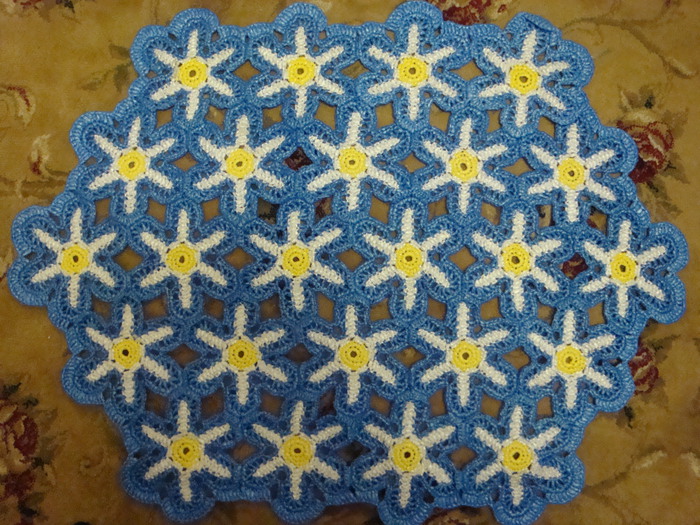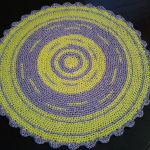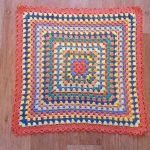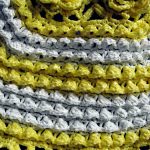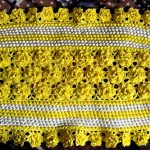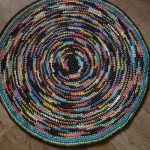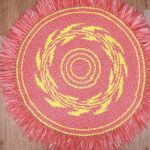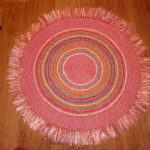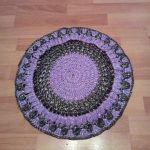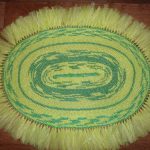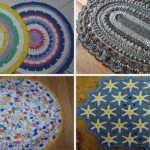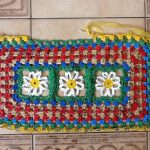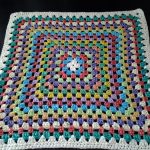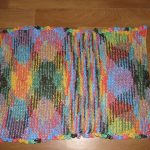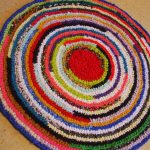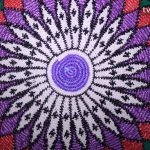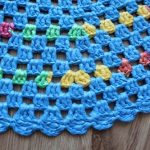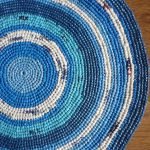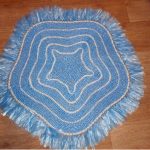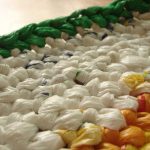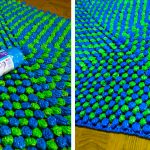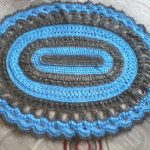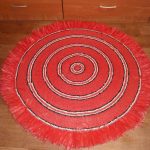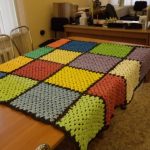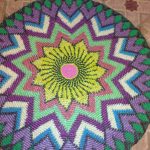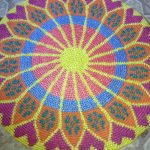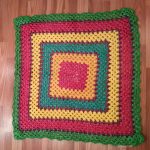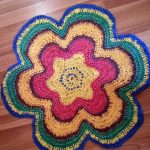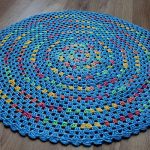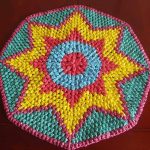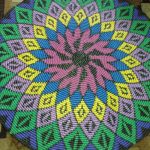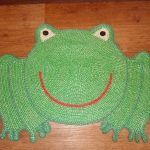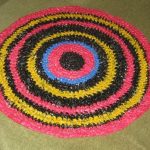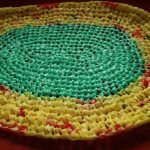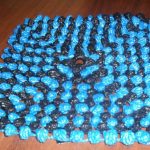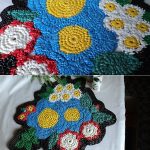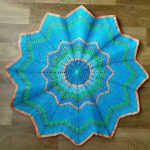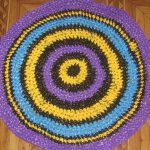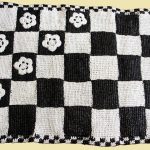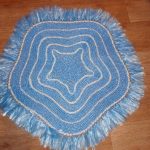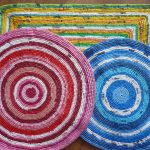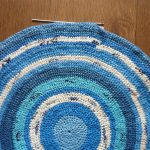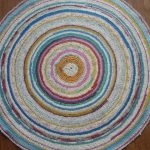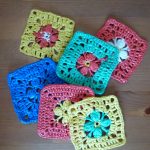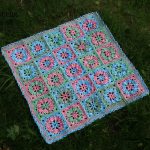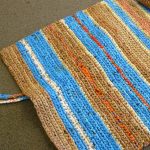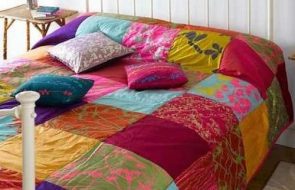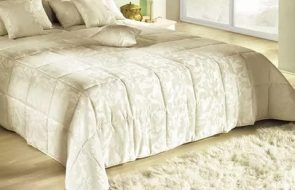Want to diversify your interior, but don't have the money? Then rugs made from polyethylene bags are your story. Minimum costs and maximum creativity.
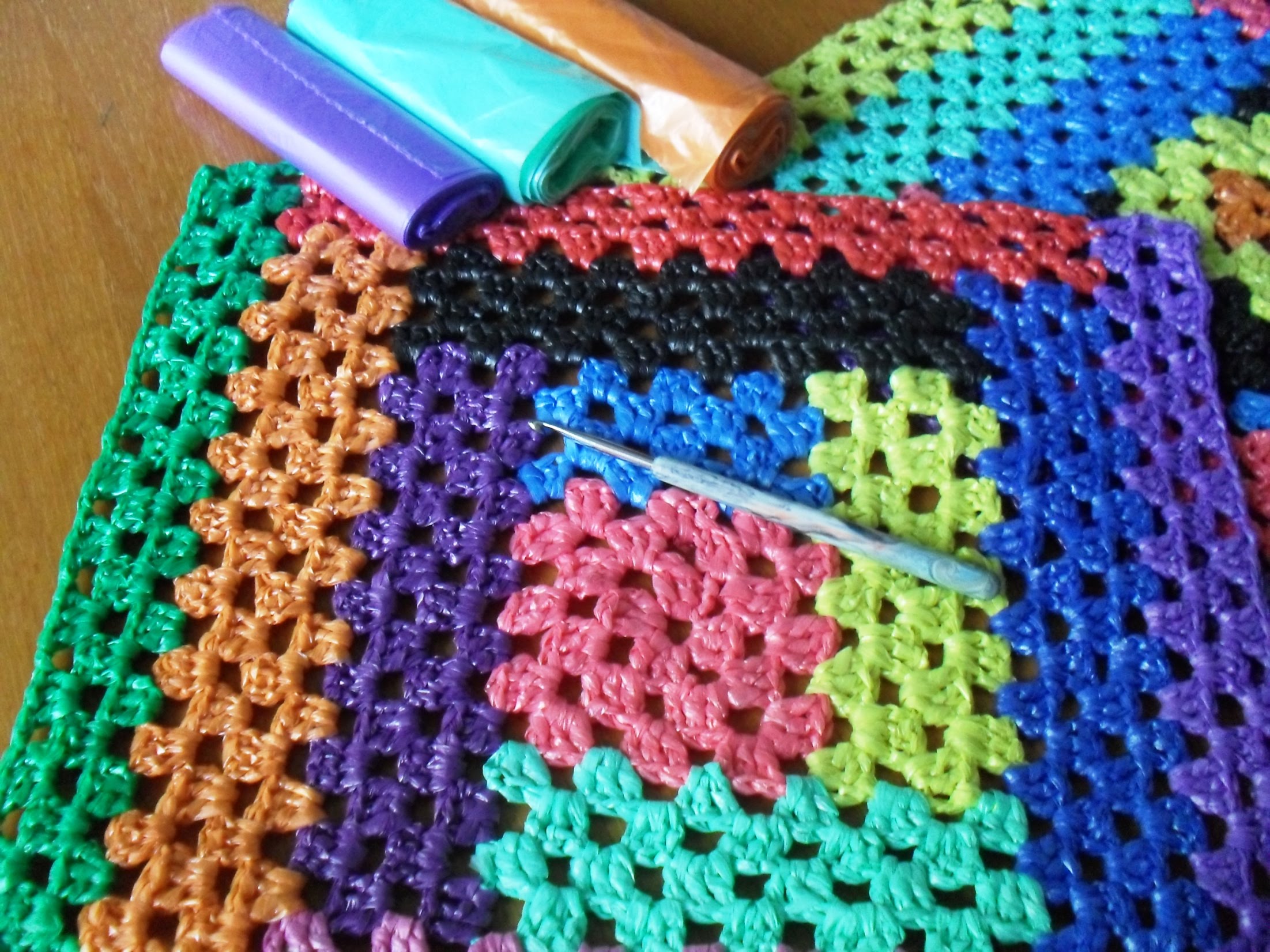
Content
Advantages of a polyethylene mat
In addition to its budget price, this accessory has a number of other advantages.
- It does not absorb water, which means there will be no increased humidity in the room.
- Easy to care for, easy to wash and dries quickly in the open air. To wash such a thing, just soak it in a soap solution and then rinse.
- Very warm and pleasant to the touch.
- Keeps its shape well.
- It is non-slip, making it an ideal bathroom accessory.
- Will decorate any interior.
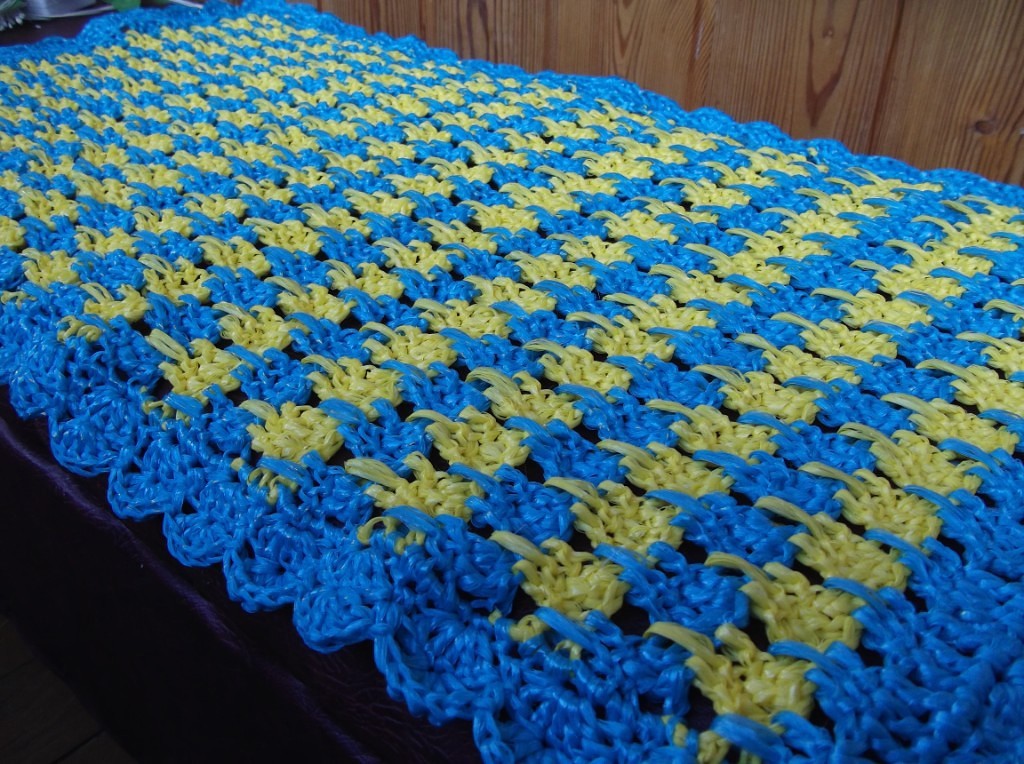
Thanks to such a decorative element, the room can be made cozy and stylish. The rug will "take root" not only in the bathroom or toilet, but also in the kitchen or hallway. And if the accessory loses its original chic, it is not a pity to throw it away and lay a new one.
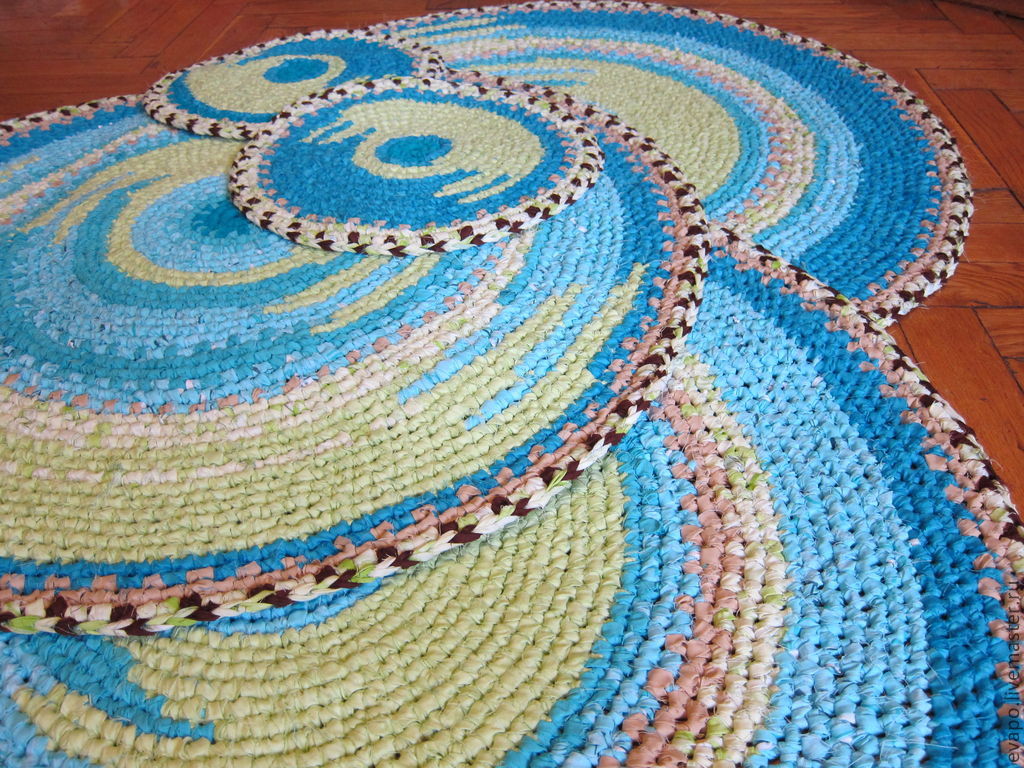
Finally, for those who like to create things with their own hands, this is a great opportunity to spend a couple of evenings doing what they love. Any craftswoman can make such a thing, even with minimal handicraft skills. Undoubtedly, polyethylene rugs are convenient, practical and economical.
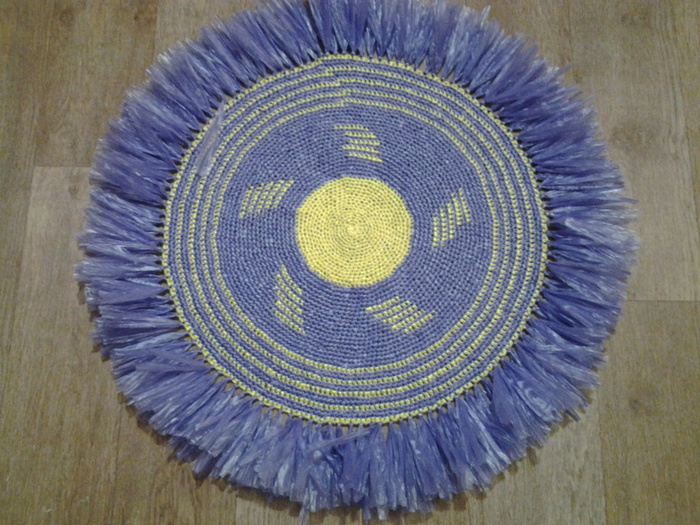
Two ways of weaving rugs
Pom-pom method
You will need:
- "threads" from bags;
- pompom base (round or square cardboard blank);
- sharp scissors;
- strong thread;
- carpet base (eg mosquito net).
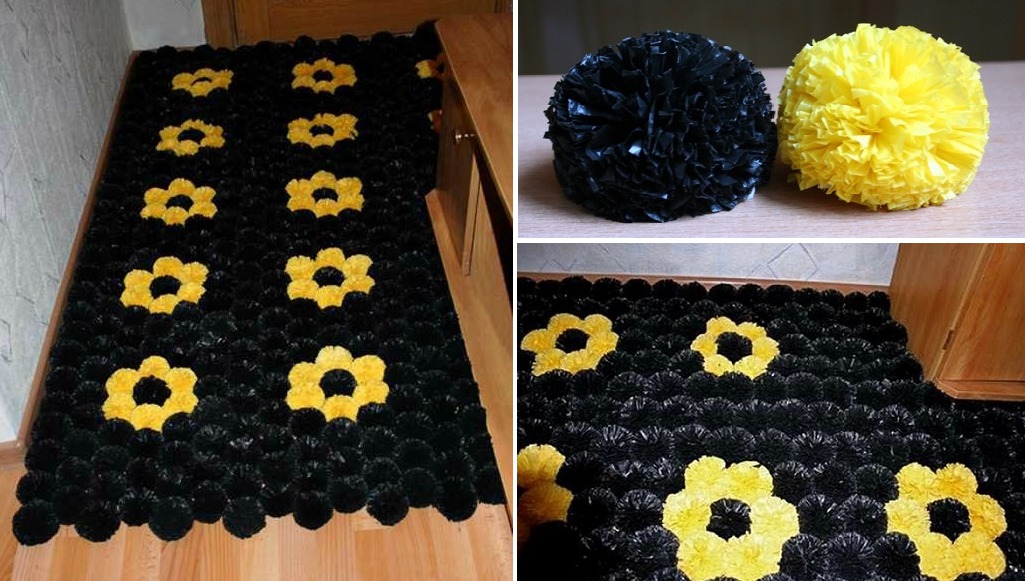
Everyone knows how to make a pompom from yarn. However, not every needlewoman realizes that this skill will help to create an unusual and very functional interior element.
You can make a pompom in the classic way: combine two cardboard rings and wind yarn on them. Then, having wound as much as you need, cut between the rings and tighten with a strong thread.
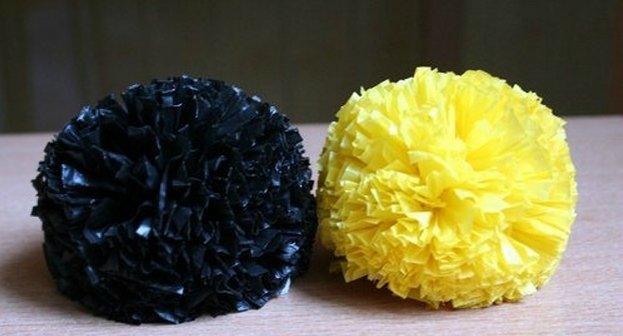
Or you can do it in a way that is more suitable for polyethylene. For this, you will need a cardboard square. Fold it in half and place a strong thread inside. The main thing is that the thread is long enough, since we will use it to fix the pompom and tie it to the base.
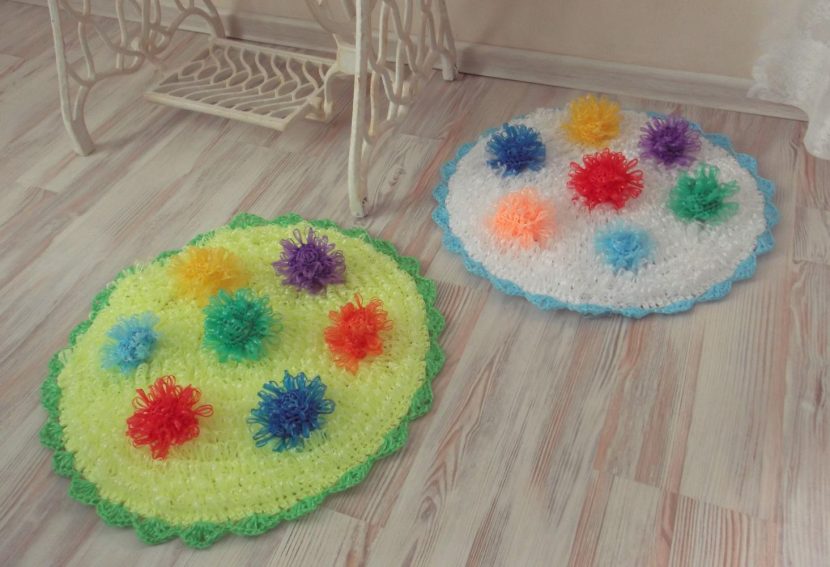
So, we wind the polyethylene "thread" onto the folded square. It is better if it does not twist, then the pompom will be airy and fluffy. Having wound the required number of circles, we tie the main thread and cut it. Then we trim the edges of the pompom and start on the next one. The number of pompoms depends on your preferences. You can make a very dense rug, then you will need a lot of pompoms, or you can place the fluffy elements at some distance.
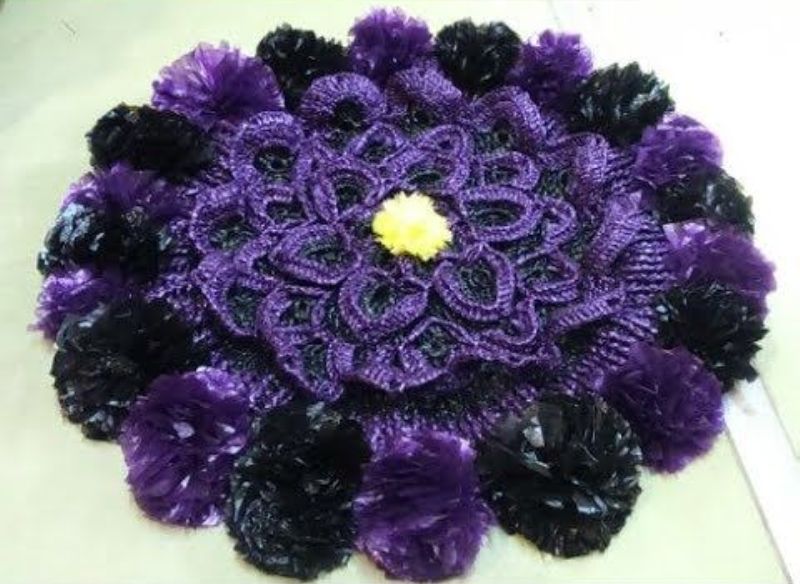
When all the elements are ready, we attach them to the base. This can be any mesh fabric. For example, a large window mesh (mosquito) or a rubber lattice base.
And such a decorative element will worthily decorate a living room or a children's room.
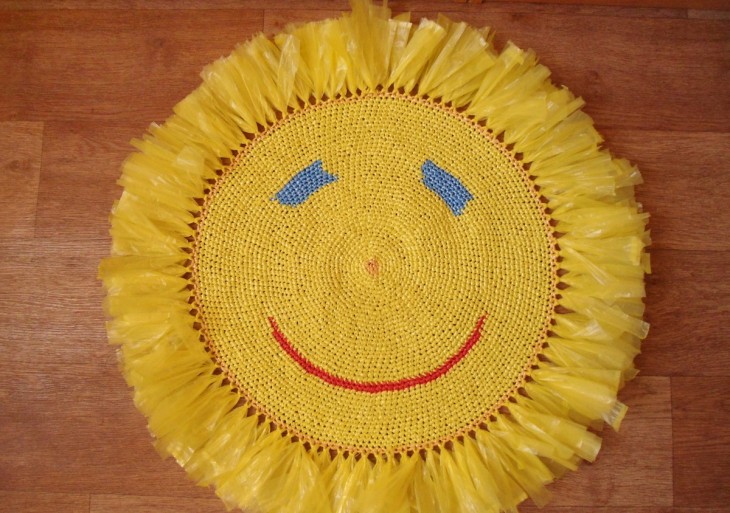
As you can see, the color and shape of the polyethylene rug in the pompom technique is chosen at your discretion.
Crochet
Important! The width of the pieces cut from the package (in cm) is equal to the hook number. If the hook is chosen correctly, the fabric will be even and dense.
It is worth noting that you can knit from bags using any pattern: from the “granny square” to complex patterns for napkins.
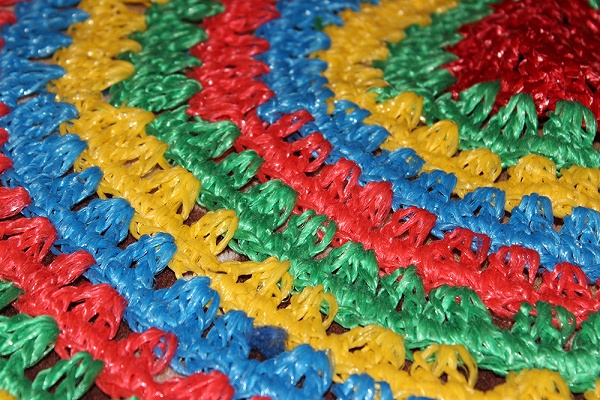
If you have at least minimal knitting skills, then this cute little frog (in the photo) is quite within your capabilities.
This bright accessory will make the hallway sunnier. And it is not difficult to knit it, the main thing is to follow the pattern exactly.
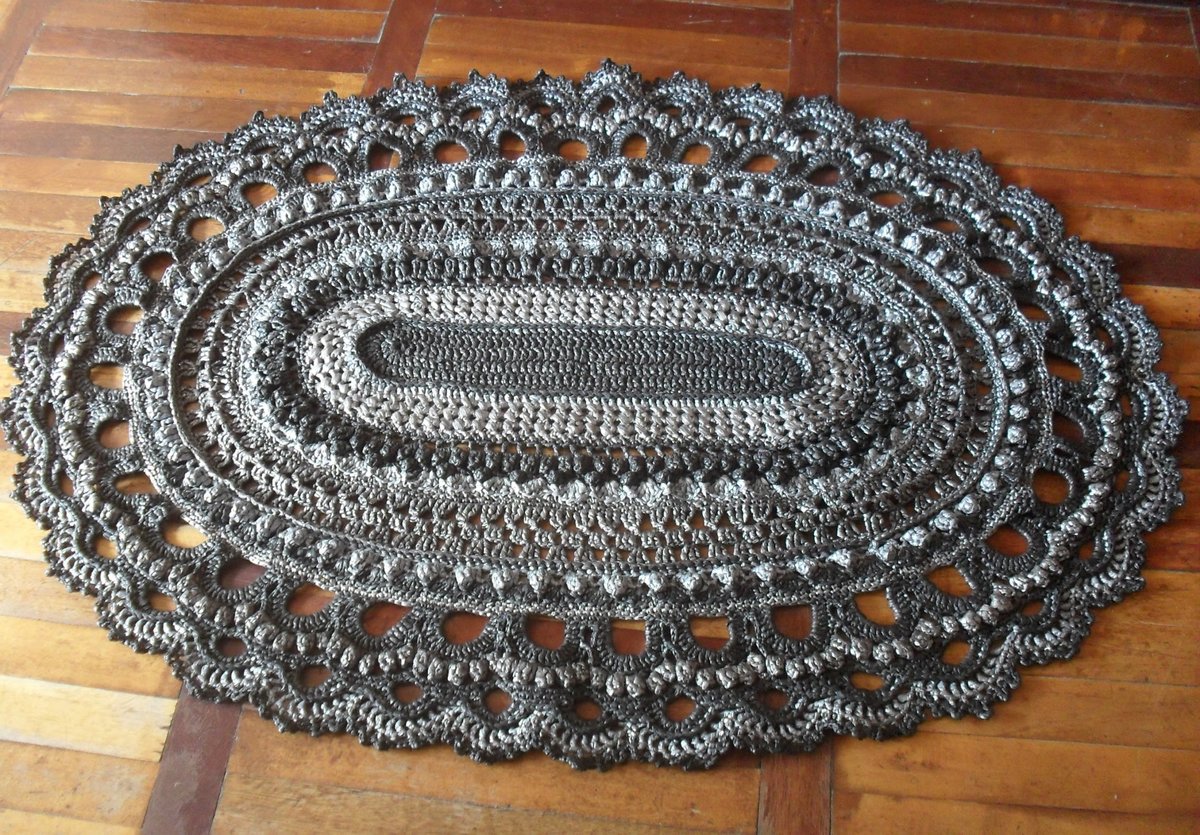
An interesting rug made of fragments. The right color scheme allows you to create a creative thing. In this case, the "granny square" principle is used. Fragments of different colors and sizes are connected to each other and tied with edging.
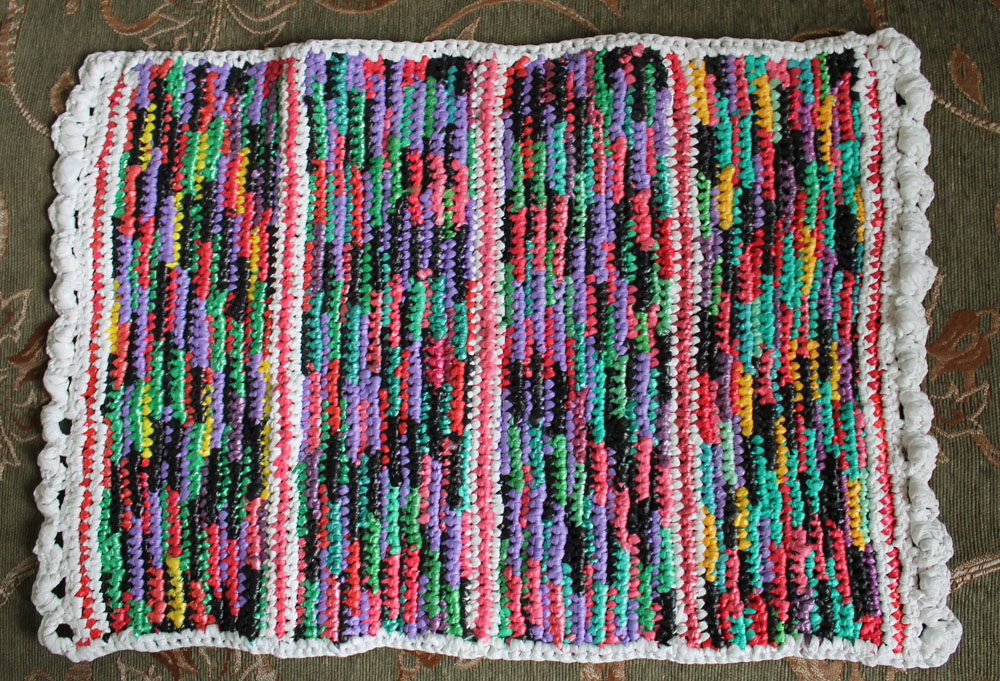
Methods of yarn preparation
For many, the difficulty lies not in making the rug, but in the process of preparing the material – polyethylene yarn.
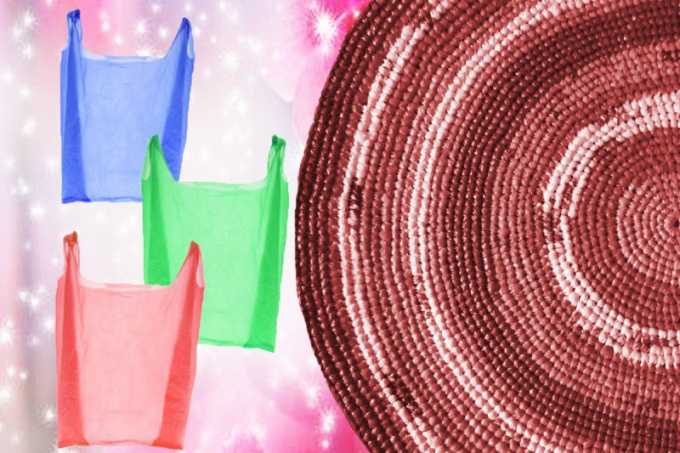
Important! If you have never knitted such items before, try knitting a small fragment from the bags you have. And if everything works out, you can take on a more serious project.
To prepare the "yarn" from garbage bags, carefully fold the bags lengthwise, and then cut them crosswise into pieces of the same width. To make the process go faster, cut not one bag, but several at once, stacking them neatly.
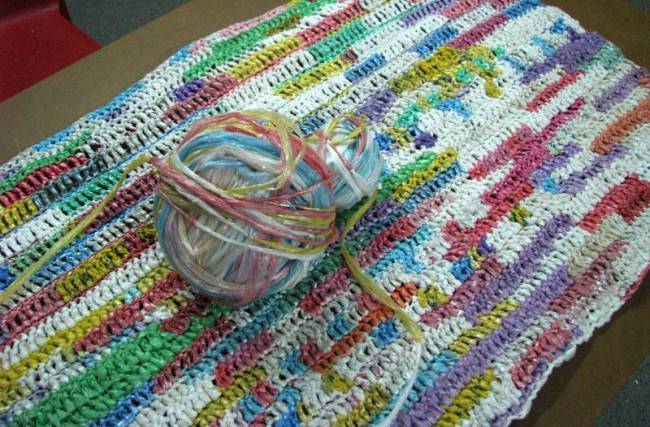
We connect the segments together with a “ring to ring” knot.
Another way to connect sections of polyethylene is during the knitting process. When one section ends, the next one is passed through it and the work continues.
It should be noted that the density of polyethylene bags varies, and this fact must be taken into account when determining the width of the cut strips. The greater the density, the thinner the strips should be.
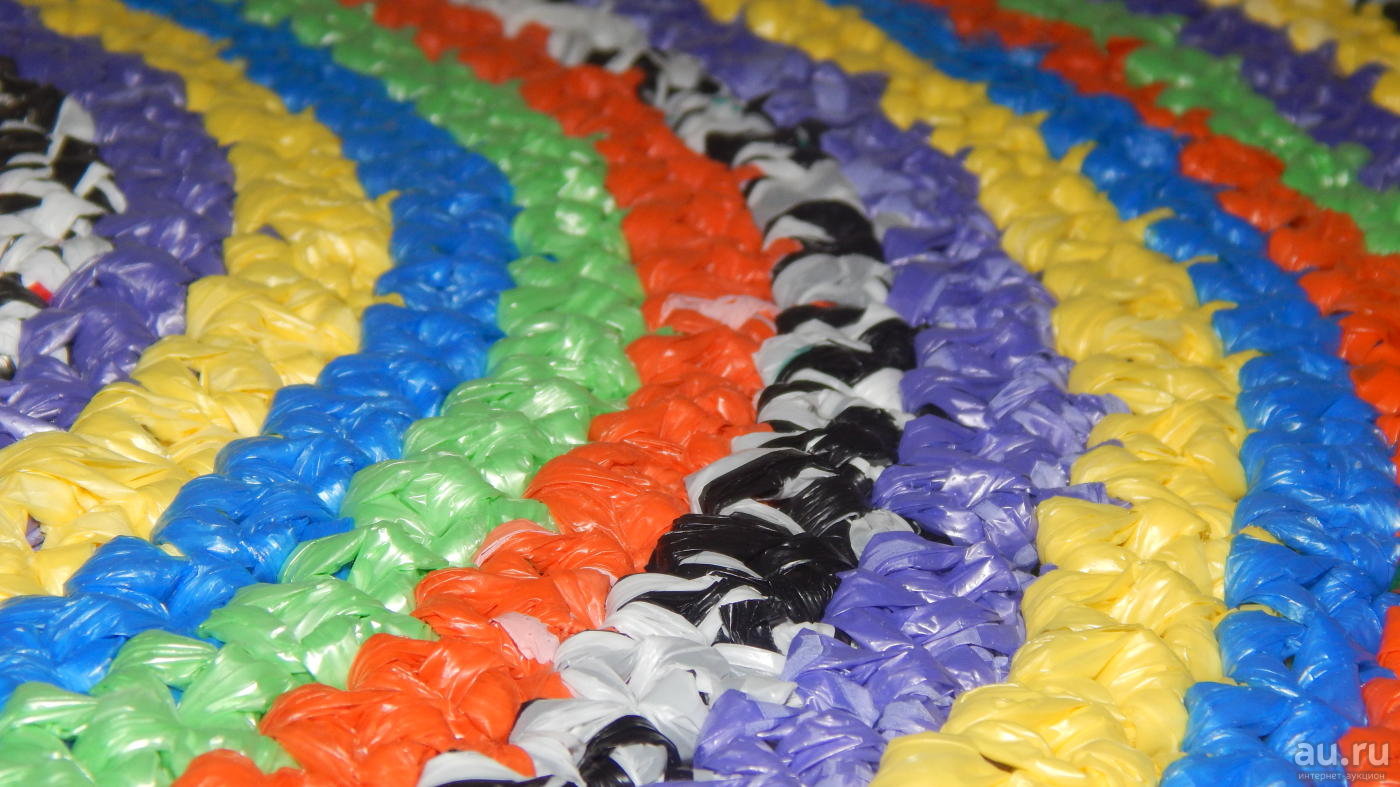
And to create interesting bright models you will need bags of different colors. It is better if the density of the bags is the same, then the rug will be even.
Mats from plastic bags: do it yourself
Rectangular rug
Alternatively, a rectangular rug can be knitted from multi-colored fragments.
The finished piece looks like this. And it's very easy to knit.
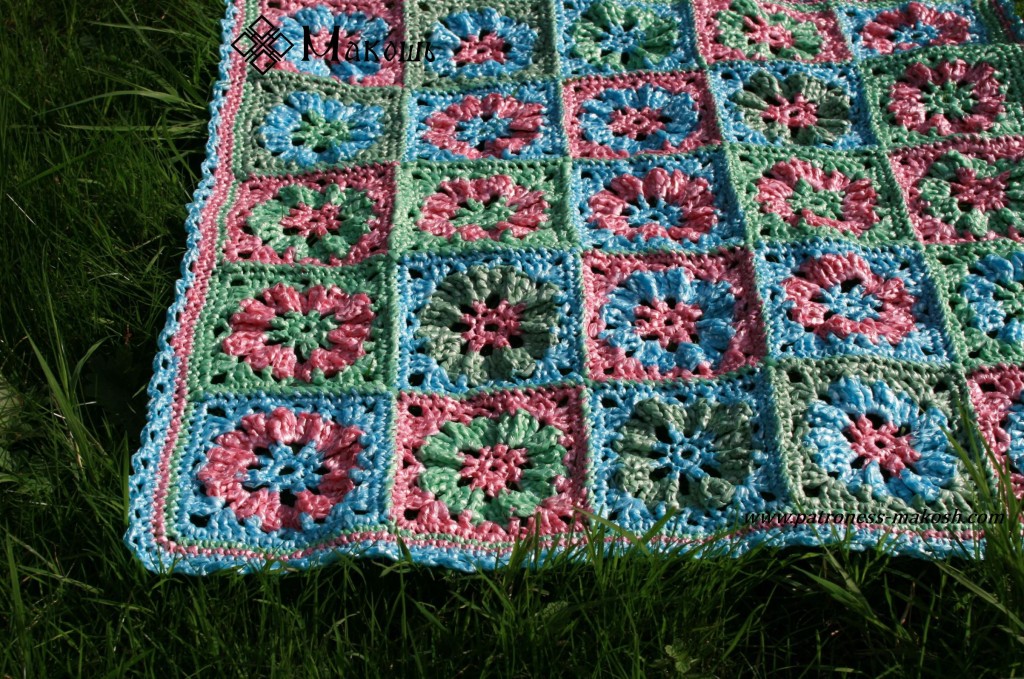
Row 1: Knit 4 chain stitches and close into a ring.
Row 2. Knit 8 single crochet stitches into the resulting ring, “diluting” them with air loops.
Row 3. Use a knitting marker to mark the corner lines of the fragment.
Row 4. In the corners, knit 2 single crochet stitches and 1 air loop between the stitches.
The size of the fragment depends only on your desire and the availability of "yarn". You can change the color during the process of making the fragment either according to the same pattern or arbitrarily.
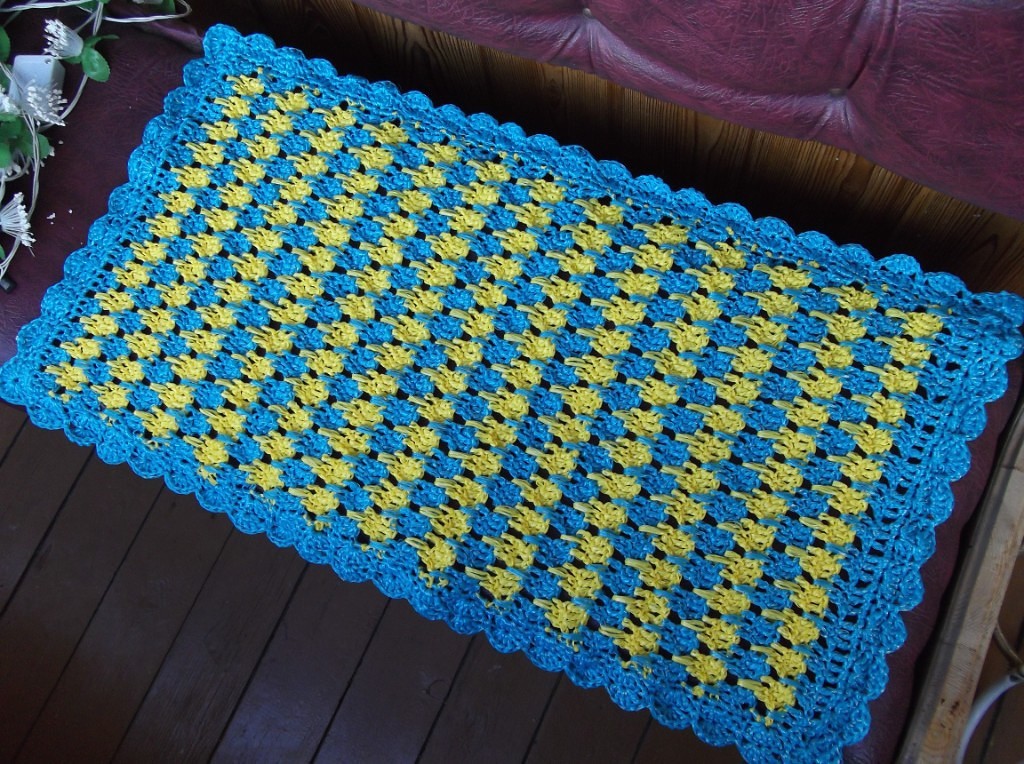
Once all the pieces are connected, you can begin to form the rug. To do this, the elements are laid out in the right order and then sewn together.
Or you can create a rainbow masterpiece like this. This rug made from garbage bags of different colors is knitted using a very similar pattern.
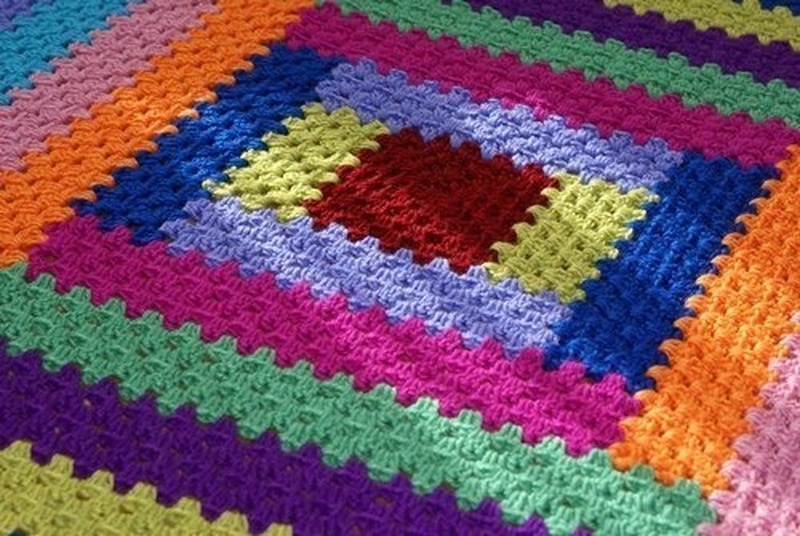
Explore interesting crochet patterns that can be used to create doormats from bags. With minimal knowledge and skills, you are guaranteed to be able to implement these patterns in reality.
An interesting combination of a rectangular and round rug will not only create coziness, but also make the toilet room comfortable. In this case, no complex pattern is used, but only multi-colored stripes.
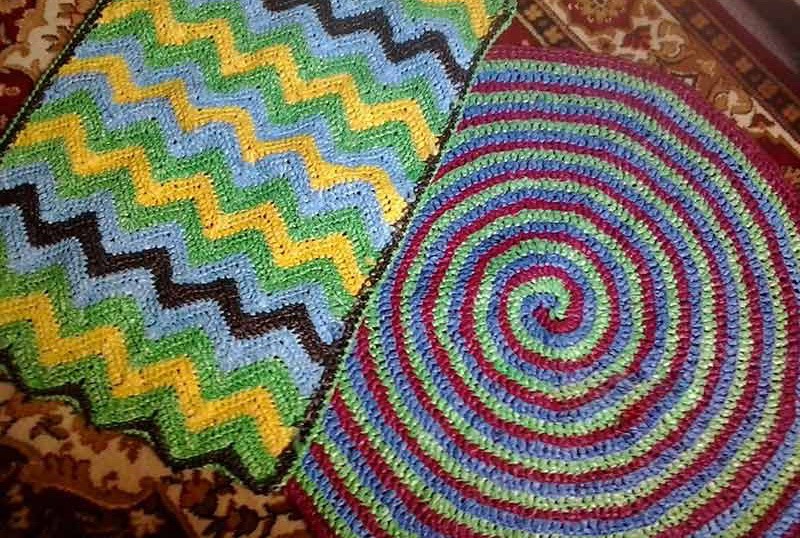
Round rug
The most basic pattern for crocheting a rug is as follows: knit five air loops and close them into a ring. Make a lifting loop. Then make one more single crochet in each of the five loops. In order for the circle to be flat and not in the shape of a bowl, three to five loops are added in each subsequent row.
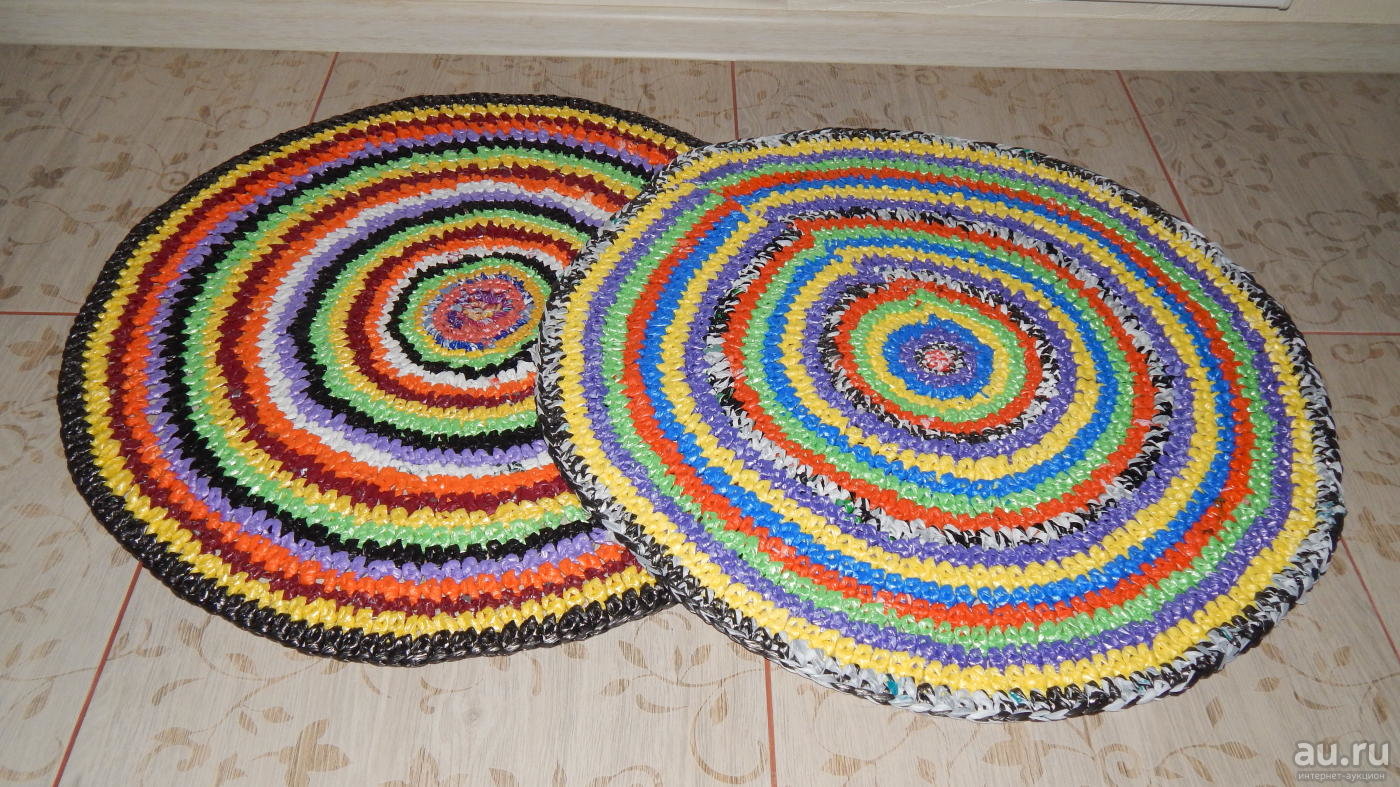
The simplest rug made from plastic bags looks like this. Despite its laconicism, such an accessory will suitably complement the interior of a bathroom or hallway.
Rug made of fragments "African flower". Individual motifs are connected to each other either during the knitting process or after the required number of elements have been knitted, they are sewn together.
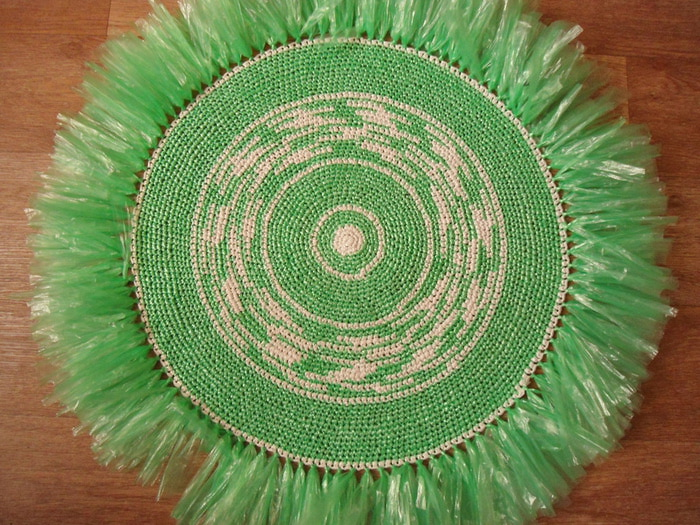
Here is an idea for a large carpet. Multi-colored flowers of different sizes are fastened together.
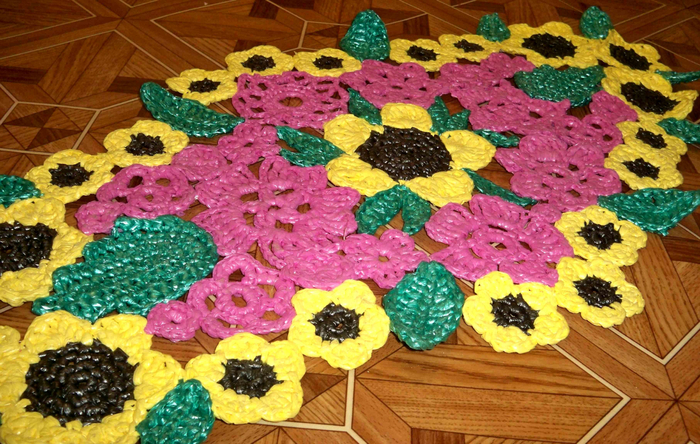
Round models, knitted according to the pattern for a tablecloth or a large napkin, look especially impressive.
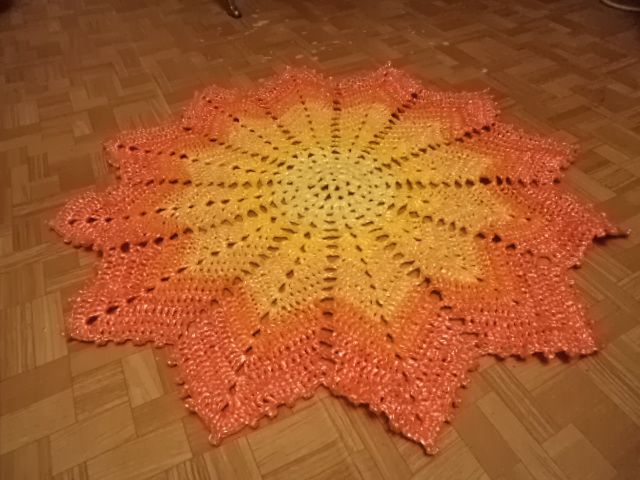
Such patterns can be easily "adjusted" to the size you need. For example, by tying the rug with several rows of double crochet, or chains of 5 (or 7) air loops. The main thing is to choose the right hook for your "yarn".
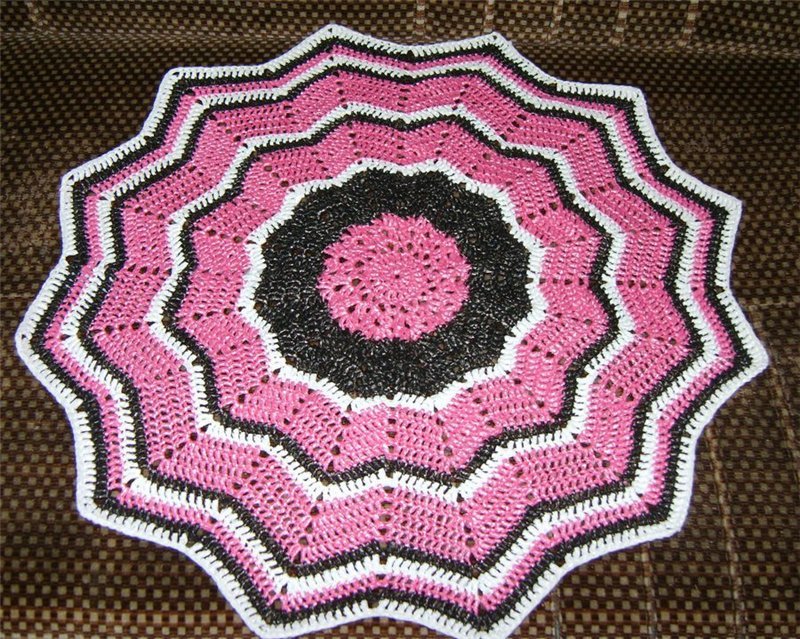
It can be openwork or dense, round or square, knitted with a solid cloth or from motifs. A rug made of polyethylene bags with your own hands is both a decorative element of the interior and a practical floor covering.
